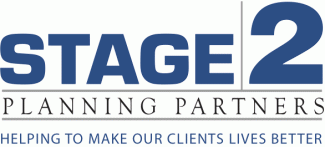About Stage 2 Planning
-
1. What fees do you charge?
-
We charge an asset fee on all managed money. The fee starts at 1% of assets and reduces to .5% depending on the amount of money that’s invested. For more information on our fees, check out our ADV Part II.
-
2. What can I expect from the initial consultation?
-
Our first consultation is what we call the alignment conversation. Our goal is to find out if we’re a suitable match for each other and if we can help meet your financial and non-financial needs as you go through this transition.
-
3. How are you different from other financial advisors?
-
We focus on both sides of money. We not only work with you on your investments and technical money needs, but we also work with you on your emotional needs that money provides.
-
4. How do you help me achieve my personal goals?
-
We treat you as the expert on your life. Our job is to listen to your hopes and dreams and then develop strategies that will get you to the life you want.
-
5. How do you protect my money?
-
All investments involve risk. To minimize that risk, we use a system called the Stage 2 Investment Process. With this process, we segregate your money into three different buckets. The market will always move against you at different times in an investment cycle, but having your money segregated helps you avoid making poor investment decisions during these periods.
About Business Succession Planning
-
1. How can I get the most out of my business?
-
Most business owners we work with want to achieve enough financial success from their business to meet their non-financial and lifestyle goals. We help you identify what those goals are and then develop strategies based on your lifestyle to get you there.
-
2. I want to sell my business. Where do I start?
-
When selling your business, our team helps you decide what the right person or people to sell to look like. Then, we help you find the ideal person or people to purchase it. Once we have identified potential buyers, we work with you to put your business in a position where it becomes attractive to those people.
-
3. How can I look out for my employees as I transition out of the ownership role?
-
We have several strategies we use to help your employees adjust to this transition. Among them is the stay bonus, where key people are rewarded for staying with the new owner, whoever that may be.
-
4. What will happen to my business when I’m gone?
-
That all depends on who the buyer is. The truth is: once you sell your business, what the new owner does with it is their business. This is an unfortunate fact about a business sale.
-
5. When’s the best time to sell my business?
-
The best time to sell your business is after you’ve made your business sale-ready. Sale-ready means your business is a company that someone else would want to own. Whether you’re interested in selling your business right now or in the distant future, it’s a good idea to take steps toward making your business sale-ready.
About Retirement & Retirement Planning
-
1. When should I think about retiring?
-
We believe you should start thinking about your retirement at least ten years before you leave. The earlier you save for retirement, the less you must save every year.
-
2. Is retirement right for me?
-
Retirement is a personal decision and looks different for everyone. We help you develop a plan that could include changing careers, staying with your job, or discontinuing work altogether. Our goal is to help you understand what works best for you and make a plan to achieve what you want to do with your life.
-
3. What should my retirement plan include?
-
There are two sides to retirement. One is the technical side that talks about investments and cash flow. The second is how you will spend your time after you retire. Both are important and both need equal attention if you plan to have a fulfilling retirement.
-
4. What are some common mistakes people make when they retire?
-
The biggest mistake we see is not planning for the emotional changes that come with retirement. Many people don’t consider the loneliness that comes from losing the social support of work. We help you understand why this happens and develop strategies to limit the pain. Watch our video on the dangers of loneliness.
-
5. What can I expect after retirement? What will my life be like?
-
That all depends on what sort of preparation that you’ve done along the way. For some, retirement is a time of renewal and new things, For others who don’t prepare, retirement is a time of deep disappointment. We want you to use retirement as a time for joy and new experiences, and we have ways to help you do this.
About Difficult Life Transitions
-
1. How long will it take me to adjust to the new normal?
-
This all depends on you. With the death of a spouse, it often takes seven or eight years before you’ve moved into what we call “the new normal.” Understanding the stages of transition and knowing what stage you’re in is a big help.
-
2. What are some mistakes people make after a divorce or losing a significant other?
-
Too often, we see people who have suffered a loss make big decisions before they’re ready to do so. When you have a major loss or change in your life, outside influences often try to make you do things you’re not ready for. We help you identify what you have to do versus what can be put off. Learn about the Decision Free Zone.
-
3. Why is it a bad idea to make big decisions during a significant life change?
-
When you have a major life transition, your IQ drops—sometimes drops by an enormous amount. It's difficult to think clearly or see the bigger picture. We don’t want you to make major life decisions when your full faculties are not available. So we help you prioritize decisions to avoid making a choice that could make the future more challenging. Get your guide to The Decision Free Zone.
-
4. Why do you talk about communication preferences in our first meeting?
-
Put some clear and concise content in here. Keep your reader in mind. What are they trying to do? What are they hoping to learn? Why are they reading this? Help them out and use the tone and voice of your organization.
-
5. I’m having a hard time deciding. Is there anything I can do to make the process easier?
-
We have a process called the Stage 2 Decision Process. This helps you look at four areas of a decision: What you want to do Why you want to do it Who will help along the way How you will get there This process helps you make wise decisions you won’t regret down the road.

